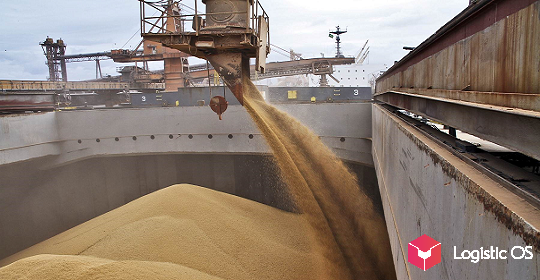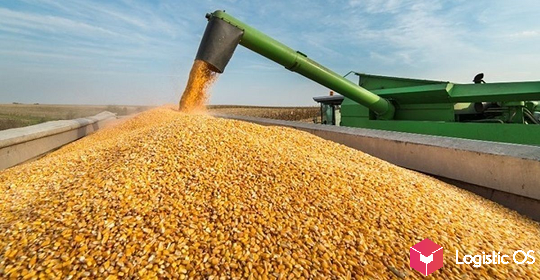The Ministry of Economic Development has submitted for discussion a draft resolution on the establishment of customs rates.
According to the proposal, the size of the duty on the export of soybeans may be 30%, but not less than 165 euros per ton.
Now there are no duties on this culture.
In recent years, the gross harvest of soybeans in Russia has grown significantly: over 19 years to 4.65 million tons — more than 13 times.
And the production of soybean oil and meal has increased 20 times: soybean oil is produced 0.72 million tons, and meal — 2.94 million tons.
Regulation of export of crops through the establishment of duties should contain the rise in prices for soybean processed products and help to increase the workload of processing enterprises.
By 2024, according to the project «Export of agricultural products», soybean oil should be exported by 35% compared to 2020 and sold for $ 645 million, and soybean meal for $ 813 million (an increase of 2.5 times).
So far, possible growth is constrained by a shortage of oilseeds.
What excited the manufacturers?
Big problems arise in the Far Eastern Federal District, which produces about 2 million tons of soybeans.
More than half of the collected is exported, in particular, to China.
As a result of the introduction of duties, part of the products for processing will have to be sent to the European part of Russia. And, given the cost of such transportation, it will be simply unprofitable to transport soybeans.

Just a few days ago, Prime Minister Mikhail Mishustin has already signed a decree to increase duties on sunflower exports from 6.5% to 30%.
Also introduced duties on the export of rapeseed.
Transbaikal producers sound the alarm and worry that these measures will kill projects that are still at the development stage, but in a few years may grow into major players in the market.
It is clear that all producers will suffer from the introduction of duties to one degree or another, but such a step may affect the farmers of the Far East to a greater extent due to their geographical location.
Therefore, they ask the Ministry of Economic Development and the Russian Government either not to impose restrictions in this region, or to subsidize the transportation of raw materials within the country.
At the moment, the producers of rapeseed in the Far Eastern Federal District, for example, have already felt the impact of such measures on their business: practically the whole rapeseed is supplied from here to China.
And Chinese importers refuse to pay an advance payment for the goods because the price is unknown.
Contracts and agreements are being disrupted, and China is a strategic region for Russia in terms of agricultural exports.
The profitability of rapeseed enterprises is based on the price of $ 35 per kg. The duty will be $ 15 per kg.
It is easy to calculate that with the cost of a crop at 28 rubles, the sale price abroad should either rise to 43 dollars per kg, or producers will work at a loss.

